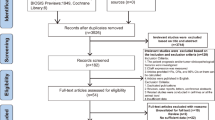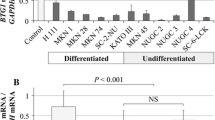Summary
Abundant studies have been conducted to identify how B-cell translocation gene 1 protein (BTG1) gene affects the differentiation, proliferation, metastasis of cancer cells, and how it further regulates the generation or development of diseases to influence the prognosis of patients. However, the data from single research were not powerful enough. The correlations between BTG1 expression and mechanisms of tumorigenesis or prognosis of patients are still in controversial. Our system review and meta-analysis provided a complete explanation about the association between BTG1 expression and clinicopathological features or prognosis of patients, which further laid a foundation for future research on BTG1. Fifteen eligible studies consisting of 1992 participants were included. We uncovered that BTG1 expression in solid tumors was associated with lymph node status (RR=0.66, 95% CI: 0.58–0.75, P=0.142), TMN stage status (RR=2.13, 95% CI: 1.71–2.65, P=0.001), T category (RR=1.90, 95% CI: 1.20–3.00, P=0.000), histological differentiation (RR=1.91, 95% CI: 1.55–2.37, P=0.012), vascular invasion (RR=0.90, 95% CI: 0.57–1.41, P=0.001). BTG1 low expression was significantly associated with overall survival (OS) (HR=0.47, 95% CI: 0.38–0.67, P=0.000). It concluded that BTG1 possessed the potential value for future research and could be recommended as a significant biomarker in solid tumor.
Similar content being viewed by others
References
Bray F, Ferlay J, Soerjomataram I, et al. Global cancer statistics 2018: GLOBOCAN estimates of incidence and mortality worldwide for 36 cancers in 185 countries. CA Cancer J Clin, 2018,68(6):394–424
Bornschein J, Rokkas T, Selgrad M, et al. Gastric cancer: clinical aspects, epidemiology and molecular background. Helicobacter, 2011,16(Suppl):45–52
Molina-Castro S, Pereira-Marques J, Figueiredo C, et al. Gastric cancer: Basic aspects. Helicobacter, 2017, 22(Suppl)
Yuniati L, Scheijen B, van der Meer LT, et al. Tumor suppressors BTG1 and BTG2: Beyond growth control. J Cell Physiol, 2019,234(5):5379–5389
Sun GG, Wang YD, Cheng YJ, et al. BTG1 underexpression is an independent prognostic marker in esophageal squamous cell carcinoma. Tumour Biol, 2014,35(10):9707–9716
Sun GG, Wang YD, Cheng YJ, et al. The expression of BTG1 is downregulated in nasopharyngeal carcinoma and possibly associated with tumour metastasis. Mol Biol Rep, 2014,41(9):5979–5988
Kanda M, Oya H, Nomoto S, et al. Diversity of clinical implication of B-cell translocation gene 1 expression by histopathologic and anatomic subtypes of gastric cancer. Digest Dis Sci, 2015,60(5):1256–1264
Sun GG, Lu YF, Cheng YJ, et al. Expression of BTG1 in hepatocellular carcinoma and its correlation with cell cycles, cell apoptosis, and cell metastasis. Tumour Biol, 2014,35(12):11 771–11 779
Lu YF, Sun GG, Liu Q, et al. BTG1 expression in thyroid carcinoma: diagnostic indicator and prognostic marker. Int J Oncol, 2014,45(4):1574–1582
Zheng H, Li J, Shen D, et al. BTG1 expression correlates with pathogenesis, aggressive behaviors and prognosis of gastric cancer: a potential target for gene therapy. Oncotarget, 2015,6(23):19 685–19 705
Huang Y, Zheng J, Tan T, et al. BTG1 low expression in pancreatic ductal adenocarcinoma is associated with a poorer prognosis. Int J Biol Markers, 2018,33(2):189–194
Sheng SH, Zhao CM, Sun GG, et al. BTG1 expression correlates with the pathogenesis and progression of breast carcinomas. Tumour Biol, 2014,35(4):3317–3326
Sun G, Liu Q, Cheng Y, et al. B cell translocation gene 1 reduces the biological outcome of kidney cancer through induction of cell proliferation, cell cycle arrest, cell apoptosis and cell metastasis. Int J Mol Med, 2015,35(3):777–783
Kanda M, Sugimoto H, Nomoto S, et al. B-cell translocation gene 1 serves as a novel prognostic indicator of hepatocellular carcinoma. Int J Oncol, 2015,46(2):641–648
Jiang R, Hu W, Sun G, et al. Expression of BTG1 protein in laryngeal squamous cell carcinoma and its clinical significance. J Clin Otorhinolaryngol Head Neck Surg, 2015,29(16):1447–1450
Zhao S, Chen S, Yang X, et al. BTG1 might be employed as a biomarker for carcinogenesis and a target for gene therapy in colorectal cancers. Oncotarget, 2017,8(5):7502–7520
Kim J, Do S, Bae GE, et al. B-cell translocation gene 1 is downregulated by promoter methylation in ovarian carcinoma. J Cancer, 2017,8(14):2669–2675
Zhao Y, Gou W, Chen S, et al. BTG1 expression correlates with the pathogenesis and progression of ovarian carcinomas. Int J Mol Sci, 2013,14(10):19 670–19 680
Sun GG, Lu YF, Cheng YJ, et al. The expression of BTG1 is downregulated in NSCLC and possibly associated with tumor metastasis. Tumour Biol, 2014,35(4):2949–2957
Li WY, Li FG, Li SL, et al. Expression of B-cell translocafion gene 1 protein and mRNA in esophageal squamous cell carcinoma tissue and its significance. Chin J Exp Surg (Chinese), 2016,33(9):2217–2219
Wang YQ, Zhang X. Expression of BTG1 protein in gastric cancer and its clinical significance. Med J Air Force, 2016,32(03):171–174
Tierney JF, Stewart LA, Ghersi D, et al. Practical methods for incorporating summary time-to-event data into meta-analysis. Trials, 2007,8:16
Stang A. Critical evaluation of the Newcastle-Ottawa scale for the assessment of the quality of nonrandomized studies in meta-analyses. Eur J Epidemiol, 2010,25(9):603–605
Cochran WG. The comparison of percentages in matched samples. Biometrika, 1950,37(3–4):256–266
Bowden J, Tierney JF, Copas AJ, et al. Quantifying, displaying and accounting for heterogeneity in the meta-analysis of RCTs using standard and generalised Q statistics. BMC Med Res Methodol, 2011,11:41
Egger M, Davey Smith G, Schneider M, et al. Bias in meta-analysis detected by a simple, graphical test. BMJ, 1997,315(7109):629–634
Rouault JP, Rimokh R, Tessa C, et al. BTG1, a member of a new family of antiproliferative genes. EMBO J, 1992,11(4):1663–1670
Winkler GS. The mammalian anti-proliferative BTG/Tob protein family. J Cell Physiol, 2010,222(1):66–72
Tijchon E, van Emst L, Yuniati L, et al. Tumor suppressors BTG1 and BTG2 regulate early mouse B-cell development. Haematologica, 2016,101(7):e272–e276
Suk K, Sipes DG, Erickson KL, et al. Enhancement of B-cell translocation gene-1 expression by prostaglandin E2 in macrophages and the relationship to proliferation. Immunology, 1997,91(1):121–129
Cortes U, Moyret-Lalle C, Falette N, et al. BTG gene expression in the p53-dependent and -independent cellular response to DNA damage. Mol Carcinogen, 2000,27(2):57–64
Cho J, Kim JJ, Park SG, et al. Identification of B-cell translocation gene 1 as a biomarker for monitoring the remission of acute myeloid leukemia. Proteomics, 2004,4(11):3456–3463
van Galen JC, Kuiper RP, van Emst L, et al. BTG1 regulates glucocorticoid receptor autoinduction in acute lymphoblastic leukemia. Blood, 2010,115(23):4810–4819
Dupressoir A, Morel AP, Barbot W, et al. Identification of four families of yCCR4- and Mg2+-dependent endonuclease-related proteins in higher eukaryotes, and characterization of orthologs of yCCR4 with a conserved leucine-rich repeat essential for hCAF1/hPOP2 binding. BMC Genomics, 2001,2:9
Prévôt D, Morel AP, Voeltzel T, et al. Relationships of the antiproliferative proteins BTG1 and BTG2 with CAF1, the human homolog of a component of the yeast CCR4 transcriptional complex: involvement in estrogen receptor alpha signaling pathway. J Biol Chem, 2001,276(13):9640–9648
Cho IJ, Lee AK, Lee SJ, et al. Repression by oxidative stress of iNOS and cytokine gene induction in macrophages results from AP-1 and NF-kappaB inhibition mediated by B cell translocation gene-1 activation. FreeRadical Biol Med, 2005,39(11):1523–1536
Yoshida Y, Tanaka S, Umemori H, et al. Negative regulation of BMP/Smad signaling by Tob in osteoblasts. Cell, 2000,103(7):1085–1097
Robin-Lespinasse Y, Sentis S, Kolytcheff C, et al. hCAF1, a new regulator of PRMT1-dependent arginine methylation. J Cell Sci, 2007,120(Pt 4):638–647
Berthet C, Guéhenneux F, Revol V, et al. Interaction of PRMT1 with BTG/TOB proteins in cell signalling: molecular analysis and functional aspects. Genes Cells, 2002,7(1):29–39
Vadgama JV, Scuric Z, Chakrabarti R, et al. Insulin-like growth factor I differentially regulates the expression of HIRF1/hCAF1 and BTG1 genes in human MCF-7 breast cancer cells. Int J Mol Med, 2006,18(1):129–139
Nahta R, Yuan LXH, Fiterman DJ, et al. B cell translocation gene 1 contributes to antisense Bcl-2-mediated apoptosis in breast cancer cells. Mol Cancer Ther, 2006,5(6):1593–1601
Doidge R, Mittal S, Aslam A, et al. The anti-proliferative activity of BTG/TOB proteins is mediated via the Caf1a (CNOT7) and Caf1b (CNOT8) deadenylase subunits of the Ccr4-not complex. PLoS One, 2012,7(12):e51 331
Lee H, Cha S, Lee M, et al. Role of antiproliferative B cell translocation gene-1 as an apoptotic sensitizer in activation-induced cell death of brain microglia. J Immunol (Baltimore), 2003,171(11):5802–5811
Wu X, Ding N, Hu W, et al. Down-regulation of BTG1 by miR-454-3p enhances cellular radiosensitivity in renal carcinoma cells. Radiation Oncol (London, England), 2014,9:179
Zhang H, Tang J, Li C, et al. MiR-22 regulates 5-FU sensitivity by inhibiting autophagy and promoting apoptosis in colorectal cancer cells. Cancer Lett, 2015,356(2 Pt B):781–790
Author information
Authors and Affiliations
Corresponding author
Additional information
Conflict of Interest Statement
All authors have no conflicts of interest in our research.
This work was supported by Natural Science Foundation of Hubei Province of China (No. 2018CFB611).
Rights and permissions
About this article
Cite this article
Chen, Xq., Meng, Fq., Xiong, H. et al. Identification of BTG1 Status in Solid Cancer for Future Researches Using a System Review and Meta-analysis. CURR MED SCI 40, 85–94 (2020). https://doi.org/10.1007/s11596-020-2150-z
Received:
Revised:
Published:
Issue Date:
DOI: https://doi.org/10.1007/s11596-020-2150-z




